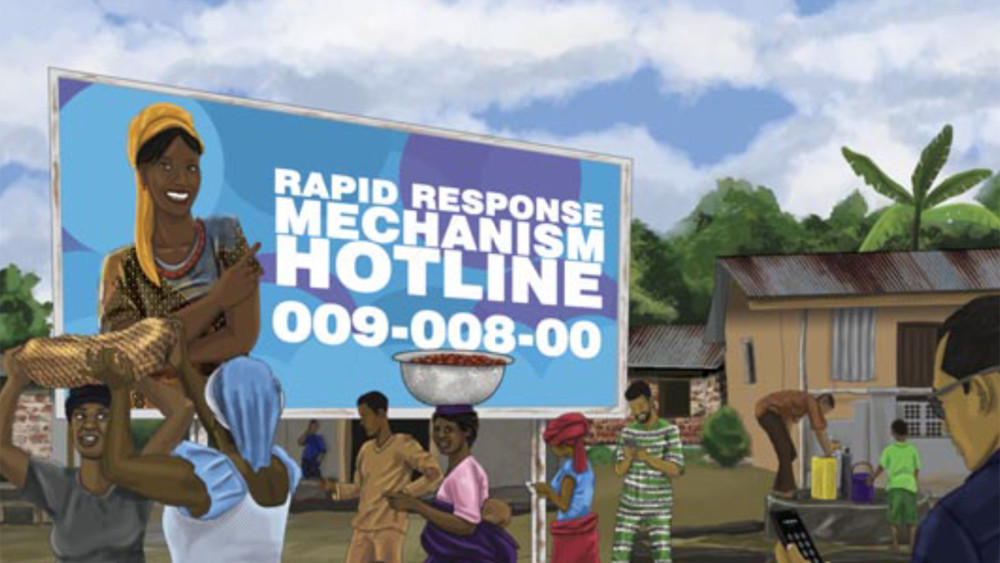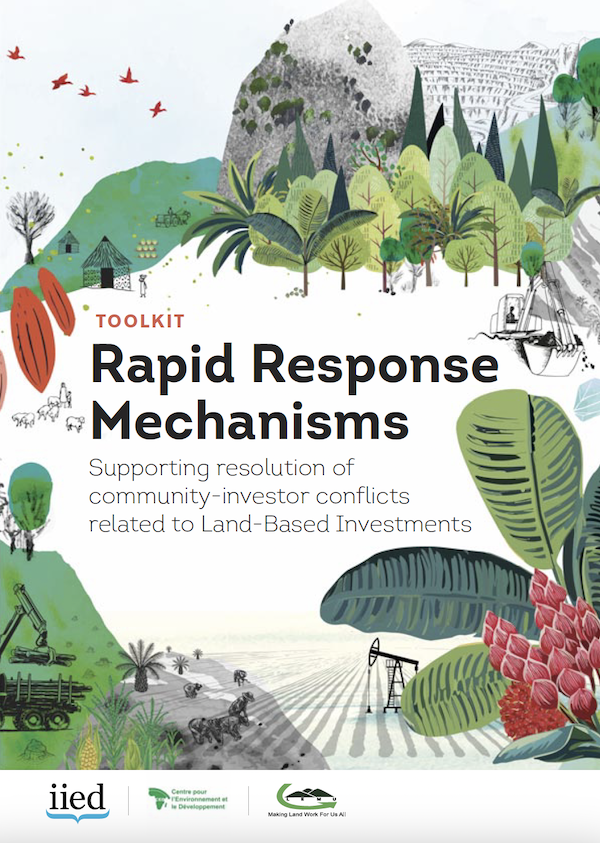Rapid response mechanisms (RRMs) are a new, proactive legal approach designed to provide legal and technical support to communities facing nascent conflicts related to land-based investments. RRMs provide preventative rather than reactive legal help the moment a conflict arises or community members’ rights are threatened, rather than trying to reverse rights violations once they have already occurred.
To seasoned land rights advocates, it is an all-too-familiar story: investors arrive in a village and claim land in bad faith without having properly consulted with the local community.
They may have paid bribes, or made elaborate promises of community benefits that were not put into writing (and never materialise), or come hand-in-hand with government officials who threatened or intimidated villagers into consenting to a proposed investment. They then, in the course of operations, desecrate local ecosystems, violate human rights and destroy sacred sites.
Legal advocates usually get involved after such rights violations have already taken place; reacting to what has become a significant conflict, rather than trying to prevent it from happening. Legal support arrives after lives have been lost, properties destroyed, families displaced or evicted, local waters and soils polluted, and whole communities devastated.
Under such circumstances, legal support has a limited chance of reversing the damage. Rather, efforts are geared towards seeking reparations, advocating for community members to be released from jail and demanding compensation.
A new, proactive model
Rapid response mechanisms (RRMs) allow advocates to respond quickly and preventatively to resolve potential conflicts before they escalate and before major harm is done.
RRMs are particularly useful in areas where the likelihood of a community-investor conflict is high, for example when there is sudden land or resource scarcity – whether due to a drastic reduction in the area of land available to local communities, a drastic change in the quality of land or resources available (due to pollution, deforestation or a company claiming resources that local families depend on for their livelihood or survival), or investors limiting or cutting community access to water and other resources – and the remaining land and resources cannot meet the community’s needs and other available land or resources are limited.
RRMs allow advocates, working together with community members and local leaders, to identify these kinds of ‘hotspots’, then resolve or diffuse conflicts and remedy underlying violations before major conflicts erupt. Such preventative support may also serve government and investor interests by preserving peace and increasing overall stability in a region.
How do RRMs work?
RRMs may include:
- A dedicated free hotline, advertised through posters, flyers, billboards and radio programmes
- A network of key informants who provide advocates with reliable information as events occur
- At least one staff member responsible for managing hotline calls and/or key informant reports
- A simple database to track and record incoming calls and requests for help, and
- Field visits for direct intervention.
RRMs function best when they are flexible, adaptive and responsive to the local and national context. Our ongoing pilot project, undertaken in Uganda by the Land and Equity Movement in Uganda (LEMU) and the Centre pour l'Environnement et de Développement in Cameroon (CED), has found that, where citizens feel safe and free to report potential conflicts, a hotline works well.
But where people are regularly imprisoned, killed or severely penalised for speaking up, covert reporting systems are necessary to avoid recrimination, backlash, arrest and other dangers.
RRMs can ensure that communities have a trustworthy source of advice to call upon when a conflict is imminent or just beginning, and make legal services (provided by phone) accessible to people in extremely remote areas.
They are also a cost-effective, efficient way to serve communities, as providing preventative legal help can reduce the time and resources advocates must spend resolving entrenched land conflicts or litigating injustices. The data gathered by RRMs can also be aggregated and analysed to identify patterns and practices that can be addressed through policy reform.
A new toolkit
Based on direct field experience, the new RRM toolkit co-produced by IIED, CED and LEMU offers practical guidance to advocacy organisations on how to create and run RRMs in a wide range of contexts. It covers:
- What RRMs are and how they might be useful
- The logistics of setting up an RRM
- Tactics for researching and understanding community–investor conflicts
- Strategies for keeping organisations and community members safe
- Legal and technical strategies for resolving conflicts, addressing rights violations and establishing protections for affected communities
- How to use the media to report cases of investor violations, and
- How to work collaboratively with lawyers in investors’ home countries (who may not face personal danger from taking a case).
Packed with case examples, practitioner experiences, cautionary warnings and strategy tips like the example below, we hope the guide helps advocacy organisations around the world working with communities affected by land investments to promote preventive legal empowerment approaches, rather than simply respond to harm after it has been done.



